Tour Length
Rates in USD $ – Change Currency
Per person, excl. international flightsOperator Rating
Other Tour Features
Filter by Operator
Filter by Accommodation
4-Day African Safari Tours
A 4-day African safari is a wonderful thing. Yes, it would be nice to have more time on safari than just 4 days, but you can still see so much, even in such a short space of time. There are seemingly infinite possibilities for choosing where to go, but wherever you choose, there is no continent like Africa for seeing charismatic animals against a beautiful backdrop that only Africa can offer. Whether you’re looking for the Big Five, big cats or big elephants, or yearning for deserts, savannahs or vast inland deltas, Africa has abundant possibilities to get you on your way.
-
Best Seller

4-Day Best Tarangire, Serengeti & Ngorongoro Trip
$1,352 pp (USD)
Tanzania: Private tour
Mid-range Lodge & Tented CampYou Visit: Arusha (Start), Tarangire NP, Serengeti NP, Ngorongoro Crater, Arusha (End)

Serengeti Silence
5.0/5 – 73 Reviews
-
Top Rated Operator

4-Day Greater Kruger Luxury Lodge, Panorama Route Safari
$1,257 to $1,383 pp (USD)
South Africa: Shared tour (max 8 people per vehicle)LuxuryLodge
You Visit: Johannesburg (Start), Moditlo GR (Blue Canyon GR), Kruger NP, Panorama Route (Highlight), Johannesburg (End)

The Kruger Safari Co.
4.9/5 – 289 Reviews
-

4-Day Northern Parks Tented Safari
$1,287 to $1,382 pp (USD)
Tanzania: Private tour
Mid-range Lodge & Tented CampYou Visit: Arusha (Start), Tarangire NP, Serengeti NP, Ndutu (Southern Serengeti NP), Ngorongoro Crater, Arusha (End)

Shemeji Safari Tanzania
4.7/5 – 299 Reviews
-
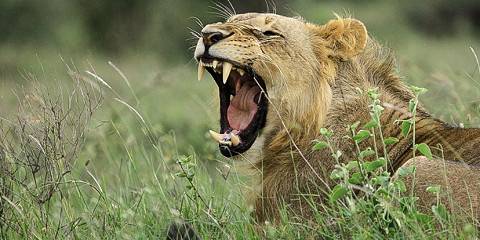
4-Day Nairobi-Amboseli-Saltlick-Tsavo East, Diani Safari
$1,310 pp (USD)
Kenya: Private tour
Mid-range Lodge & Tented CampYou Visit: Nairobi (Start), Amboseli NP, Taita Hills WS, Tsavo East NP, Diani Beach (End)

Baby Bird Tours and Safaris
4.8/5 – 17 Reviews
-
Top Rated Operator
![4-Day Rwanda Gorilla Trekking & Golden Monkey Safari]()
4-Day Rwanda Gorilla Trekking & Golden Monkey Safari
$2,718 pp (USD)
Rwanda: Private tour
Mid-range Lodge & HotelYou Visit: Kigali (Start), Kigali Airport (Kigali), Volcanoes NP (Gorillas), Kigali (End)

Hermosa Life Tours and Travel
5.0/5 – 217 Reviews
-
Top Rated Operator

4-Day Tremisana Lodge Kruger Park Safari
$1,131 pp (USD)
South Africa: Shared tour (max 9 people per vehicle)
Mid-range LodgeYou Visit: Johannesburg (Start), Balule NR (Greater Kruger), Balule NR (Greater Kruger), Kruger NP, Blyde River Canyon (Panorama Route), Johannesburg (End)

Viva Safaris
5.0/5 – 342 Reviews
-
Best Seller
![4-Day Above and Beyond - Luxury]()
4-Day Above and Beyond - Luxury
$2,940 to $3,630 pp (USD)
Tanzania: Private tourLuxuryLodge
You Visit: Arusha (Start), Serengeti NP, Arusha (End)

Soul of Tanzania
4.8/5 – 539 Reviews
-
Top Rated Operator
![4-Day Tanzania Private Mid-Range with Arrival Tour]()
4-Day Tanzania Private Mid-Range with Arrival Tour
$1,200 pp (USD)
Tanzania: Private tour
Mid-range Lodge & HotelYou Visit: Arusha (Start), Tarangire NP, Lake Manyara NP, Ngorongoro Crater, Arusha (End)

Go Serengeti African Tours
4.9/5 – 469 Reviews
-
![4-Day Tarangire Serengeti Crater Iconic Area Game Drive]()
4-Day Tarangire Serengeti Crater Iconic Area Game Drive
$1,352 pp (USD)
Tanzania: Private tour
Mid-range Lodge & Tented CampYou Visit: Arusha (Start), Tarangire NP, Serengeti NP, Ngorongoro Crater, Arusha (End)

Ndutu Green Explorers
5.0/5 – 110 Reviews
-
![4-Day Luxury Lodge Safari | Two Nights in Serengeti]()
4-Day Luxury Lodge Safari | Two Nights in Serengeti
$2,295 pp (USD)
Tanzania: Private tourLuxuryLodge
You Visit: Moshi (Start), Tarangire NP, Serengeti NP, Ngorongoro Crater, Moshi (End)

Explorian Safaris
4.8/5 – 23 Reviews
-
Top Rated Operator

4-Day Luxury Radisson Kruger Safari
$1,168 pp (USD)
South Africa: Shared tour (max 10 people per vehicle)LuxuryHotel
You Visit: Johannesburg (Start), Kruger NP, Panorama Route (Highlight), Johannesburg Airport (End)

MoAfrika Tours
4.9/5 – 4,284 Reviews
-
Top Rated Operator
![4-Day Serengeti Fly in, Fly out Safari Luxury Safari]()
4-Day Serengeti Fly in, Fly out Safari Luxury Safari
$2,475 to $2,640 pp (USD)
Tanzania: Private tour
Mid-range Lodge & Tented CampYou Visit: Zanzibar (Start), Central Serengeti NP, Serengeti NP, Ngorongoro Highlands, Zanzibar (End)

Safari Soles
5.0/5 – 467 Reviews
-
![4-Day Masai Mara-Lake Nakuru Budget Kenya Safari Tour]()
4-Day Masai Mara-Lake Nakuru Budget Kenya Safari Tour
$456 to $560 pp (USD)
Kenya: Shared tour (max 7 people per vehicle)BudgetTented Camp & Hotel
You Visit: Nairobi (Start), Masai Mara NR, Lake Nakuru NP, Nairobi (End)

Bienvenido Kenya Tours and Safaris
4.8/5 – 164 Reviews
-
![4-Day Masai Mara Migration Kenya Safari]()
4-Day Masai Mara Migration Kenya Safari
$2,117 pp (USD)
Kenya: Private tour
Mid-range LodgeYou Visit: Nairobi (Start), Masai Mara NR, Nairobi (End)

African Mosaic Tours
5.0/5 – 113 Reviews
-
Top Rated Operator
![4-Day Wings over the Wild' Fly in Luxury Tanzania Safari]()
4-Day Wings over the Wild' Fly in Luxury Tanzania Safari
$3,600 pp (USD)
Tanzania: Private tourLuxuryLodge
You Visit: Zanzibar (Start), Serengeti NP, Ngorongoro Crater, Zanzibar (End)

Mountain Warriors Tours and Safaris
5.0/5 – 440 Reviews
-
![4-Day Fly in Midrange Honeymoon Safari]()
4-Day Fly in Midrange Honeymoon Safari
$2,200 pp (USD)
Tanzania: Private tour
Mid-range Lodge & Tented CampYou Visit: Zanzibar (Start), Serengeti NP, Ngorongoro Crater, Tarangire NP, Zanzibar (End)

Go Makini Tanzania Expedition
4.9/5 – 131 Reviews
-
![4-Day Serengeti Classic Safari]()
4-Day Serengeti Classic Safari
$1,771 to $1,804 pp (USD)
Tanzania: Private tour
Mid-range Lodge & Tented CampYou Visit: Arusha (Start), Tarangire NP, Serengeti NP, Arusha (End)

Amshar Serengeti Adventures
4.9/5 – 192 Reviews
-
Top Rated Operator
![4-Day Private Mid-Range Safari Unforgettable Memories]()
4-Day Private Mid-Range Safari Unforgettable Memories
$1,200 pp (USD)
Tanzania: Private tour
Mid-range Lodge & HotelYou Visit: Moshi (Start), Arusha (City), Tarangire NP, Lake Manyara NP, Ngorongoro Crater, Arusha (End)

kiliclimb Africa Safaris
5.0/5 – 222 Reviews
-
Top Rated Operator

4-Day Luxury Ivory Moon Safari in the Kruger
$1,379 pp (USD)
South Africa: Shared tour (max 8 people per vehicle)LuxuryLodge
You Visit: Johannesburg (Start), Southern Kruger NP, Central Kruger NP, Panorama Route (Highlight), Johannesburg Airport (End)

Safarilink SA
4.9/5 – 954 Reviews
-
![4-Day Victoria Falls & Hwange Nat Park - Robins Camp]()
4-Day Victoria Falls & Hwange Nat Park - Robins Camp
$1,535 pp (USD)
Zimbabwe: Private tour
Mid-range Lodge & ResortYou Visit: Victoria Falls Town (Start), Hwange NP, Victoria Falls, Victoria Falls Airport (End)

DK Tours and Safaris
5.0/5 – 56 Reviews
7 Questions About 4-Day African Safaris

Answered by
Anthony Ham
Few writers know Africa like Anthony, who has been traveling the continent and writing about it for the past two decades. He is a safari expert, having written about safaris for Lonely Planet, SafariBookings and others, and he is the author of ‘The Last Lions of Africa’.› More about Anthony
7 Questions About 4-Day African Safaris
 Anthony Ham
Anthony Ham
Is 4 days too short for an African trip?
“Yes and no. On the one hand, you’ll finish your 4-day African safari wishing with all your heart that you could stay longer. But if I have 4 days at my disposal, I can’t think of anywhere I’d rather be than on safari in Africa. To ensure that you make the most of your time, careful planning is required when you’re organizing a 4-day safari tour. For a concentrated safari experience, it will be best to spend your time getting to know just one or two parks, reserves or safari destinations. Decide what animals and habitats you’d most like to see, and then talk to several safari operators to help you choose your destination and plan your itinerary. On a whirlwind tour you might be able to cram in as much as a destination a day. But then you run the risk of spending more time traveling between destinations than looking at animals.”
1Where should I go on a 4-day safari in Africa?
“It all depends on what you’d like to see, both in terms of animals and landscapes. East and southern Africa have by far the greatest choice of iconic safari parks and reserves. In the case of East Africa, these include Lake Manyara National Park, Tarangire National Park, Ngorongoro Crater and Serengeti National Park (all in Tanzania), and the Masai Mara National Reserve, Lake Nakuru National Park, Amboseli National Park and Samburu National Reserve (all in Kenya). Pick any of these and you’re sure to love the experience. In southern Africa, there’s Kruger National Park (South Africa), Etosha National Park (Namibia) and Hwange National Park (Zimbabwe), to say nothing of the Central Kalahari Game Reserve and Okavango Delta in Botswana. In both Africa’s east and south, these are just the beginning of a rich and diverse array of parks, reserves and conservancies. Take the time to research these parks and beyond, then begin the entirely pleasurable process of trying to match a destination and all it has to offer with the kind of safari you dream of enjoying.”
2What accommodation options can I expect?
“Such is Africa’s variety when it comes to safari accommodation that there is no easy answer to this question. One of the variables to consider is your budget: there is a world of difference between accommodation types and experiences for budget and luxury safaris, with so many nuances of variety in between. Generally, the more you pay, the more luxury and better service you can expect, although there are plenty of outstanding budget options all across Africa. At the budget end of the spectrum, you can expect to camp in small two-person tents where you’ll sleep on the ground, or stay in simple safari tents with beds or lodge rooms. In the mid-range and high-end categories, there are lodges, tented camps and hotels with different degrees of luxury to look forward to.”
3What is the best time of the year for an African trip?
“How you answer this question depends on where you’re going and what you’d like to see. Across most of East and southern Africa, the best weather conditions and wildlife possibilities are during the Dry season, which generally runs from May or June to September or October. Whenever the Dry season occurs where you’re going, these are the months when road conditions are at their best, rains are unlikely, and the wildlife is easier to see because of shorter grasses and scarce water. These months are also when prices are higher and safari trails are more crowded. During the Wet season, which is usually from November to April or May, some safari trails can be washed away and are impassable after rains, but prices are generally lower, and you’ll share the trails with fewer other travelers. Remember also that it rarely rains the whole time. On some days it may not rain at all, or it could be little more than a short but intense afternoon storm; the longer rains are usually restricted to March and April. The Wet season is also the best time for birding. Every year, millions of migrating birds arrive on the continent between September and November and usually stay until April.”
4Is it likely that I will see all the Big Five on a 4-day African safari?
“Whether you see the Big Five (lion, leopard, elephant, rhino and buffalo) during your 4 days will depend on where you go and, of course, you always need a little bit of luck as well. Although it’s very unusual for this to happen, I once saw the Big Five on a single afternoon’s game drive in one of the private reserves that surround Kruger National Park. Make sure that where you’re going has plenty of each member of the Big Five. Some destinations, for example, claim to have all five, but rhinos or one of the other species may be scarce. This is true in the Serengeti and Okavango Delta where rhinos are present but very rarely seen. Experienced safari-goers often prefer to focus on other wildlife possibilities that aren’t included in the Big Five, which was a list drawn up by early 20th-century hunters of the five most dangerous animals to hunt. Worthy highlights among those that didn’t make the final list include cheetah, spotted hyena, African wild dog, giraffe, zebra and so many more. Remember to factor these animals into your planning as well.”
5How much will this safari cost?
“The cost of your 4-day African safari will vary greatly. Variables when it comes to cost include the season in which you travel (high-season prices can be more than double those in low season), where you’re going (some countries are more expensive than others), and what kind of accommodation you’d like to stay in. Another factor is what kind of safari you would like to have. Do you want a private or a group safari? Camping or high-end tented camps? Fly-in or self-drive? Traveling in shoulder season can be an excellent way of getting more for less, while still enjoying optimum conditions. Keeping such extensive variety in mind, budget safaris usually begin at around US$100 or US$150 per person per day. On this kind of safari, you’ll most likely be camping, and you may be expected to help around camp with chores such as setting up tents and cooking. At the luxury end of the market, prices can easily reach US$500 per person per day, but can also go much higher. Most safaris cost somewhere in between.”
6How can I extend a 4-day Africa safari?
“It’s always better to plan to stay on safari longer when you make the original reservation than it is to try and extend later. If you think there might be the possibility that you’ll need to extend your safari, make sure that you read the terms and conditions provided by your tour operator carefully, including any penalty clauses (which are rare but possible) for those who seek to extend. The main problem with extending beyond 4 days is that the best safari tours, vehicles, accommodation and guides are very often booked out months in advance. Even if your operator can extend your safari (something that most are happy to do if they can), you’ll almost certainly need to change one, more, or even all of these elements if you wish to continue. Whatever your situation, always speak with your operator as soon as you can once you decide to extend.”
7


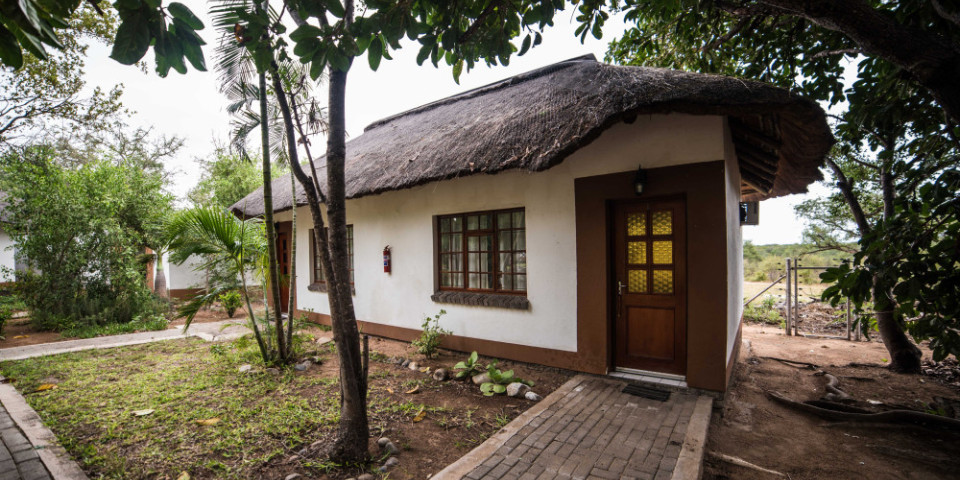



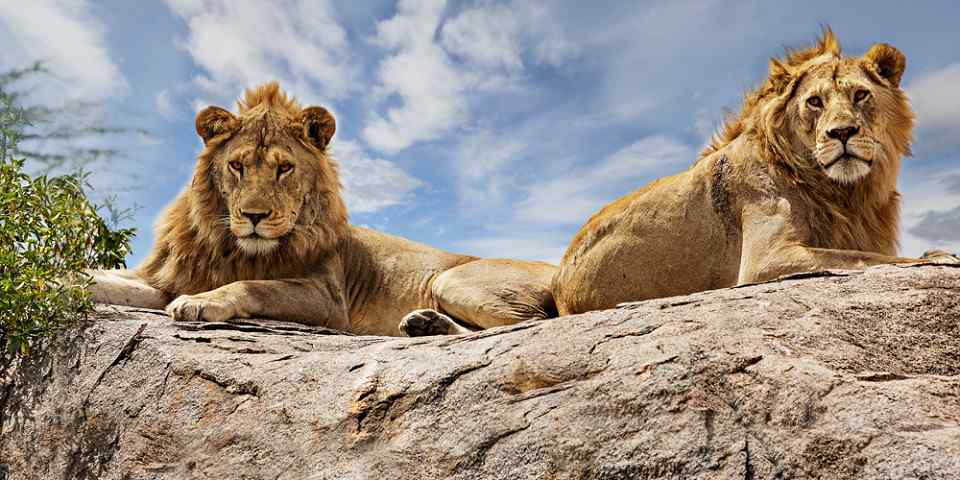



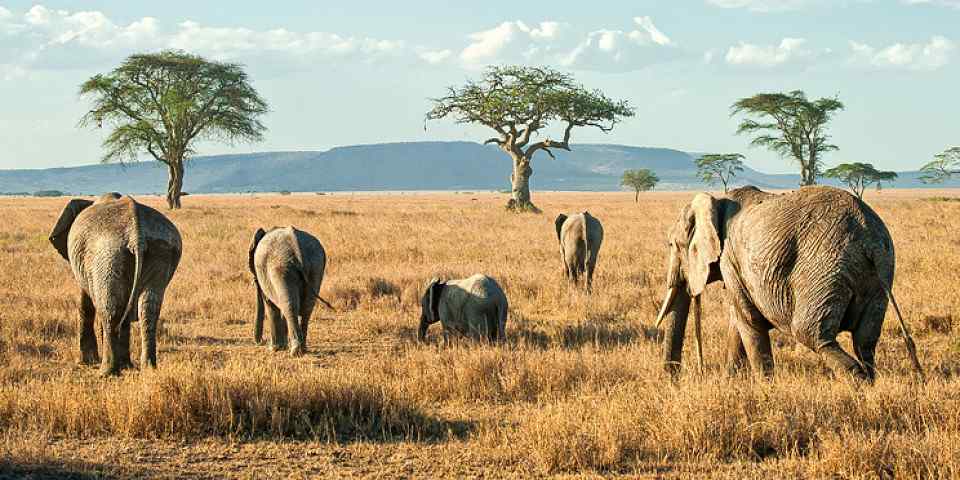

_1269_65856374115bf.960x480-35.jpg)

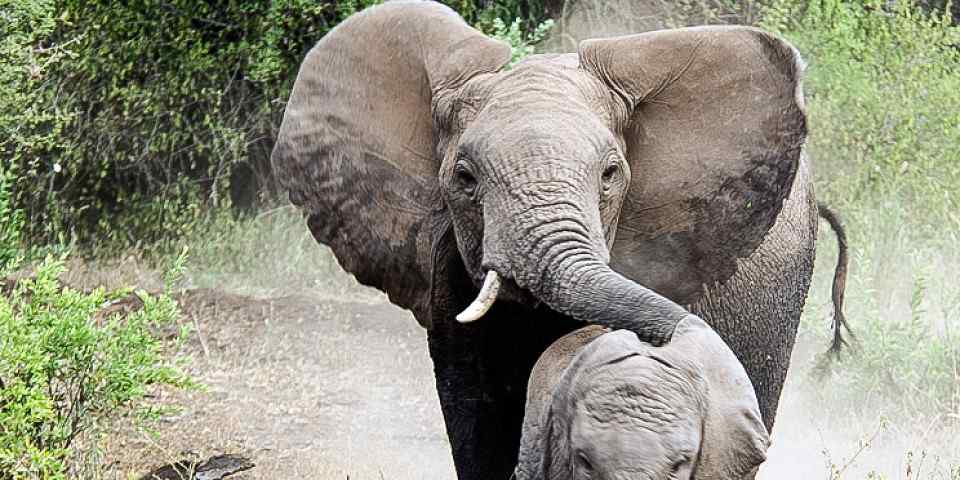

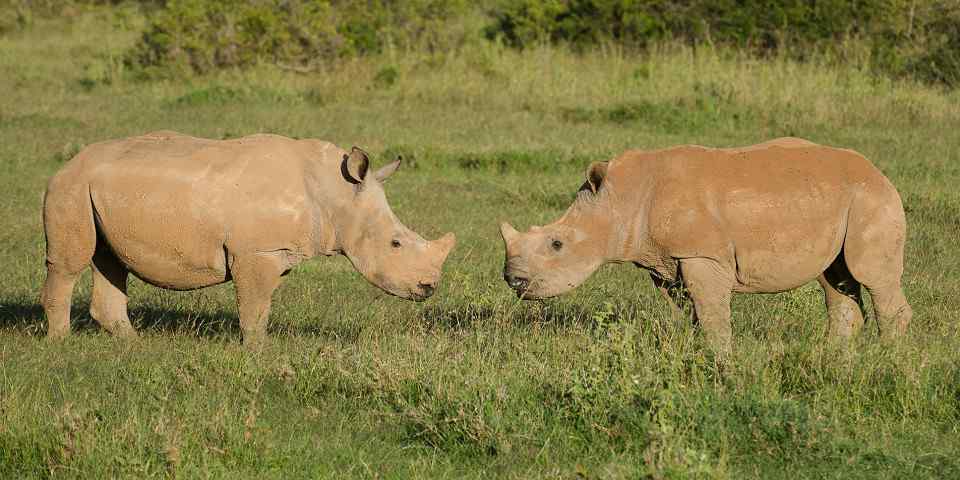


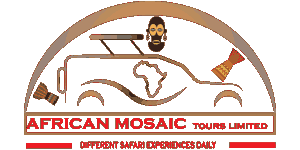




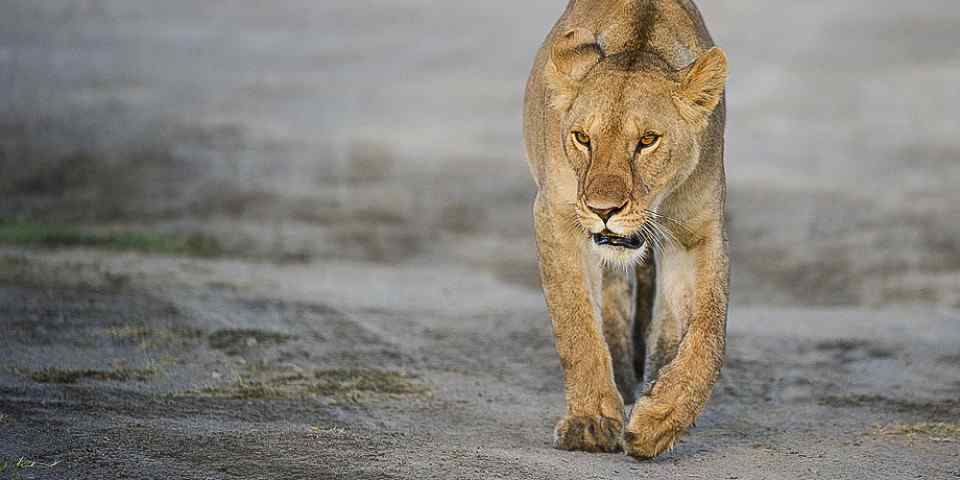


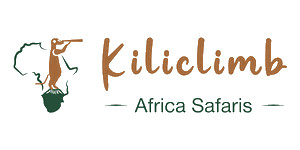



_2196_5b631a3036ccc.gif)
